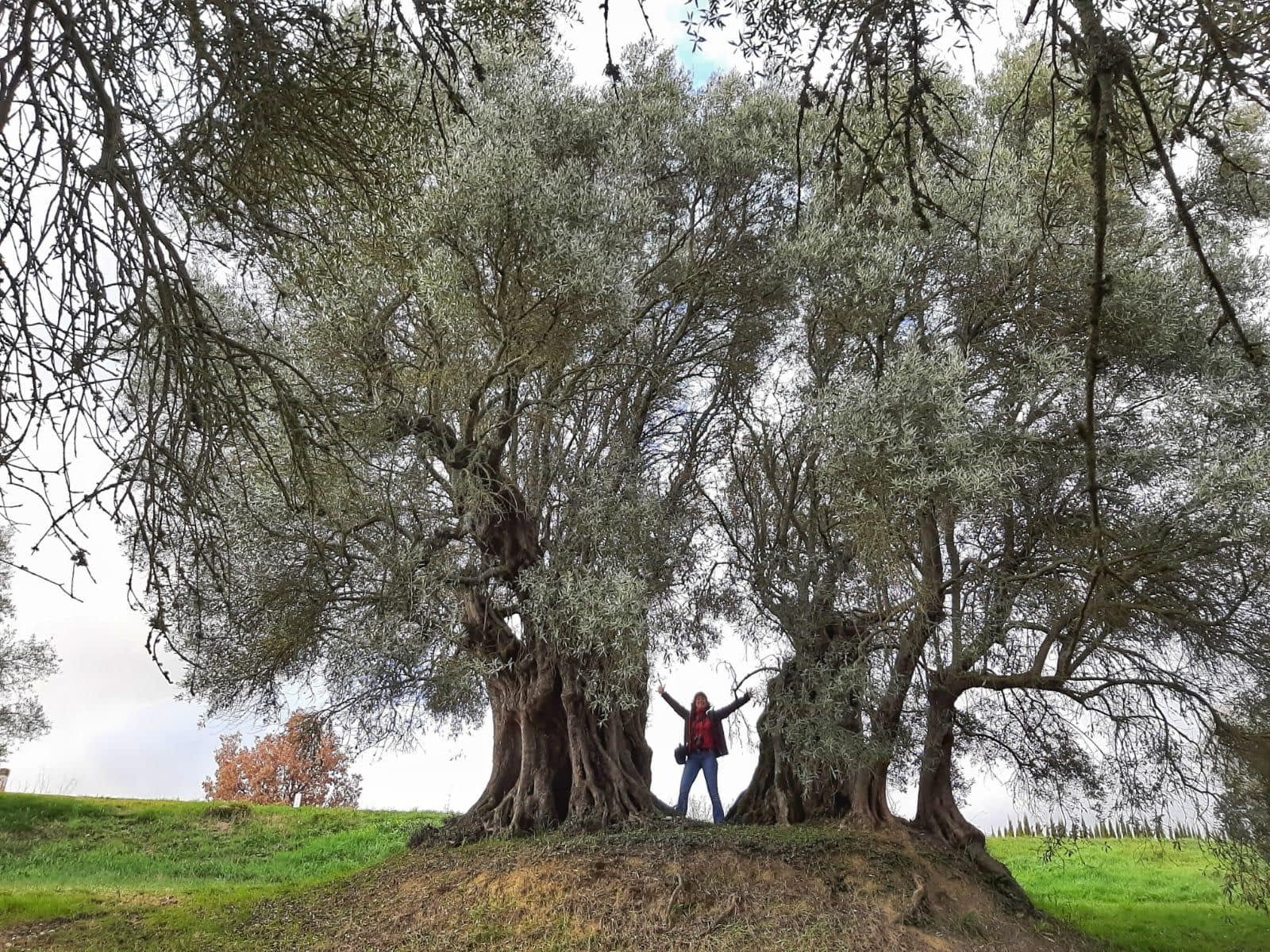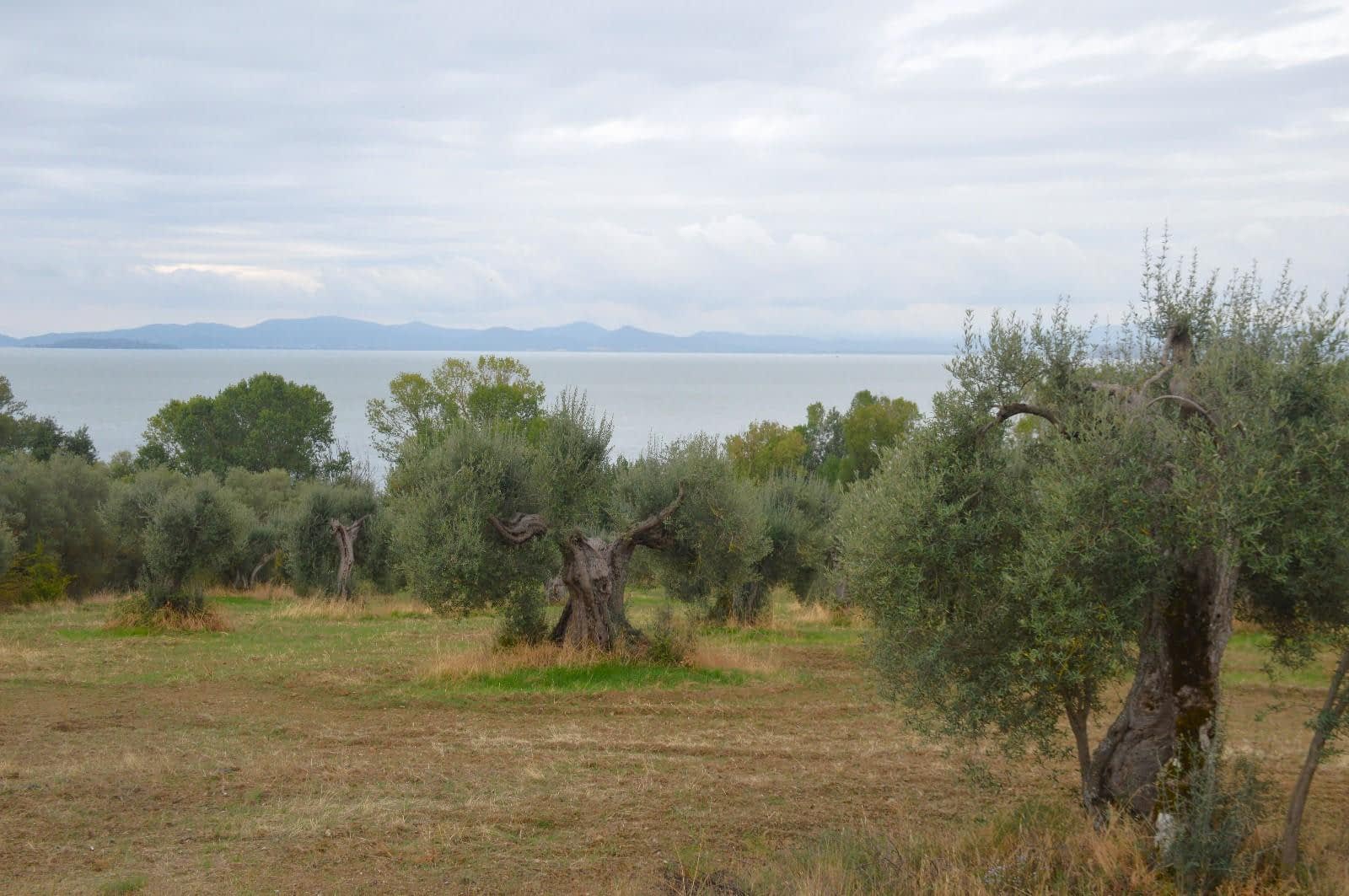How Monovarietal Olive Oils Promote Ecological Farming, Safeguard Landscapes
Producing monovarietal extra virgin olive oil promotes endemic varieties, which require fewer phytosanitary interventions, preserve landscapes and promote biodiversity.
 (Photo: Barbara Alfei)
(Photo: Barbara Alfei) The production of extra virgin olive oil from a single olive variety, has increased significantly in the last few decades.
Globally, growers’ ever-greater commitment to quality goes hand in hand with the search for new flavors to present to consumers.
When a variety is well adapted and develops smoothly in a specific environment, we have to intervene less with chemical treatments, which helps us to respect… sustainability criteria.
From Coratina to Picual, Manaki to Chemlali, and Itrana to Ayvalık, the number of monovarietals submitted by producers to the NYIOOC World Olive Oil Competition each year exceeds that of blends, which suggests the importance of this production segment on the international market.
“Monovarietal extra virgin olive oils allow producers to enhance the peculiar features of the oils that can be obtained from each olive variety, including analytical parameters such as fatty acid composition and polyphenol content,” said Barbara Alfei, the official responsible for the olive sector at the Marche Regional Agriculture and Fishing Agency and curator of the Italian monovarietal olive oil database, now in its twentieth edition.
See Also:Researchers Study How Lack of Chill Hours Impacts Olive Development, Oil Quality“This aspect is important in terms of nutritional value and health properties, and above all, of sensorial characteristics,” she added.
“A further key point is that producing monovarietals can help to enhance the bond between the autochthonous olive varieties and their territories,” she continued. “In the countries where traditional olive growing is widespread, like Italy, most varieties are not spread randomly; each is connected to a specific area and has a strong bond with a certain environment, soils and climatic conditions and landscapes.”
Hence arises the concept of ‘terroir’ that can be applied explicitly to the high-quality monovarietals made from autochthonous varieties connected to specific regions with particular characteristics.
“After two decades of work on monovarietals, we can reasonably say that the notion of ‘terroir,’ as used in the wine sector, underlies the production of a variety in a specific area, under specific pedoclimatic conditions, developing characteristics that are unique and unrepeatable in any other area,” Alfei said.
She specified that in this context, using the term variety instead of cultivar is preferable since the latter indicates a widely cultivated type of olive tree without links to a specific area. In contrast, variety means a native kind related to a well-defined area.
“In this scenario, we can take advantage of the element of environmental compatibility,” she said. “When a variety is well adapted and develops smoothly in a specific environment, we have to intervene less with chemical treatments, which helps us to respect the current environmental and agricultural sustainability criteria.”
“Indeed, this proves very useful in the framework of today’s climate crisis, which sees an increased frequency of extreme weather events with often negative effects on production due to direct meteorological reasons or to the consequent pest outbreaks that necessarily need to be treated,” Alfei added.

Alfei and a monumental olive tree during a field inspection
This suggests that promoting native varieties can help to protect traditional and historic olive orchards, often comprised of centuries-old trees, with their characteristic landscapes, said Alfei. Besides, cultivating several varieties in the same area allows farmers to differentiate production while fostering local biodiversity.
“A landscape with its monumental trees refers to the territory’s history,” she said. “This implies values, traditions and customs that enrich the oil’s identity with further components… This is a strong point that producers can leverage when presenting their products on the market.”
The AMAP organizes the annual national olive tree pruning championship, Forbici d’Oro, meaning ‘golden scissors,’ to safeguard and recover traditional olive groves and landscapes.
The ancient trees should be managed correctly and, when necessary, restored with appropriate reform pruning; the owners of these traditional groves require skills that enable them to work efficiently and earn an adequate income. This also helps avoid the risk of land abandonment.
“If there is no income, the olive trees are abandoned, which would lead to the loss of biodiversity while impacting the landscape’s productive fabric,” Alfei said. “We are then promoting a virtuous path that envisages an underlying strategy and calls for professionalism.”
“Through better management of pruning and harvesting, besides the enhancement of the value of the product, which should be sold at a profitable price, farmers can earn enough revenue,” she added. “In this way, the risk of land abandonment decreases.”
These are the aims that drive the Italian monovarietal oils database. Currently, detailed information, including nutritional values, health properties and sensory features of 194 monovarietals from 19 Italian regions, can be found in its database of 4,087 samples analyzed over 20 years.
“We have acquired a staggering amount of data and experiences which have been collected in the database that can be used for free by both professionals and enthusiasts,” Alfei said.
“This gathering of information has the scope of a vast research project and is the fruit of a team effort: the producers send the monovarietals; the AMAP panel carries out the sensorial characterization; the AMAP agro-chemical center conducts the analyses; Massimiliano Magli at the National Research Council of Bologna takes care of the statistical processing; and Giorgio Pannelli is in charge of the technical-scientific area,” she added.
The database also contains a subdivision of the sensory profiles of all the monovarietals, divided into six sensorial typologies.
“Through a cluster analysis, we have simplified this incredibly rich world of aromas and flavors to help consumers and chefs easily choose the oils to pair with their dishes,” Alfei said.
One of the most interesting insights that emerged from the database is the impact that climate change is having on some organoleptic features. In particular, it was noted that increasingly hot and dry seasons in certain areas correspond to a steady decrease in oleic acid in some varieties.
“While the aromas are linked to the genotype and remain unvaried over the years, the fatty acids depend also on environmental factors,” Alfei said. “We noted a decline of oleic acid in some varieties in certain areas in correspondence of very hot and dry seasons.”

Endemic olive varieties may be part of olive growers’ solutions to mitigating the impacts of climate change. (Photo: Alfei)
“Understanding how these parameters are changing or can change due to the effects of climate change is important since it can help us act in time to develop effective solutions,” she added.
Every year, producers from every part of Italy submit new varieties corresponding to new genotypes to the database.
Alfei’s team recently found two new genotypes in the Marche region and is now working to obtain recognition by the responsible authorities and registration in the official records, including the regional biodiversity catalog and the national register of fruit plant varieties kept by the Italian Agriculture Ministry.
“Numerous varieties have been neglected in the past, often because the fruit was too small or too resistant to detach or had a low oil yield,” Alfei said.
“In the current context, the evolution of the olive oil sector encourages producers to rediscover such autochthonous varieties, which combine business with pleasure, since, as mentioned before, they may provide a great response to the challenges posed by climate change and also impart new flavors that consumers can enjoy,” she concluded.








